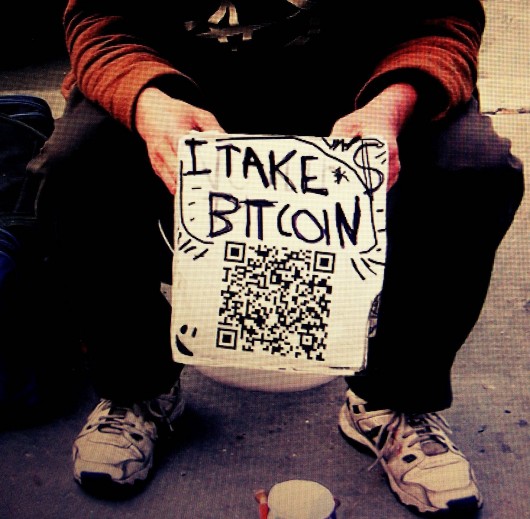There are reasons to be wary of the U.S. government, but there’s also cause to fear the people, and though the two are supposed to be indivisible, you would be hard-pressed to convince the more paranoid among us that such a thing ever be considered. Disney World, that authoritarian state, was host in October to the initial “Coins in the Kingdom” conference, a gathering of cryptocurrency enthusiasts which delivered, among others, all manner of government-hating, Bitcoin-loving Libertarians to Walt-ville. They’re pioneers of a virtual kind, though they want to leverage online might to reconfigure the physical realm. Sam Biddle of Gawker decamped to Orlando to assess the damage:
“‘There are those who just want to be left alone, there are those that just won’t leave ’em alone! It’s no more complicated than that. You think it is, but it’s not.’
Podcaster Ernie Hancock, who takes credit for Ron Paul’s ‘rEVOLution’ campaign logo and once brandished a weapon at an Obama rally, provided Saturday’s opening remark before an audience of about 12. If you’ve ever wondered where the carpet that was removed from your parents house wound up, it appears to be in a Disney conference ballroom now.
Hancock delivered his comments urgently, as if stormtroopers from the Federal Reserve would storm the room at any moment. ‘What we want to do,’ he went on, with the lilt of a carny, ‘is try to make sure that bitcoin develops in such a way that it is supportive of the rights of the individual.’
I would hear this again, and again, and again: bitcoin is a weapon for liberty that we dearly need to wield against government. Bitcoin isn’t just a way to buy gift cards online, but an act of civil disobedience, a democratization of the global financial system. There’s no denying how radical that idea is.
But before we resisted them, we needed to be scared of them.
‘Can they?’ Hancock asked the audience, invoking every conceivable form of big government malice. ‘Then they are.’ It was up to all of us in the uncomfortable chairs to stop this. ‘If it’s technologically possible to advance the interest of those with coercive power, then it will eventually become politically inevitable.’ The audience nodded along—it starts with regulation, with Wall Street acceptance, and before you know it, a prison state. Or something. If anyone disputed the notion that the very concept of government was just one fat obstacle in the way of unobstructed bullion exchange paradise, they kept quiet.
Hancock was in good company at the Magic Kingdom. Down the orange-tinted hall from his orange-tinted conference room was another chasm of hellish textiles, set up with folding chairs and tables as an exhibitor hall. At one table stood Mark Edge and Carla Mora from the Free State Project, a campaign to get 20,000 people who hate and fear government to move to New Hampshire and live near each other. Carla, asking me if I were ‘liberty-minded’ (the actual word ‘libertarian’ was rarely heard), touted New Hampshire’s permissive laws about bar closing times.
I wasn’t ready to commit to a new life in a liberty-minded colony, but I was curious what any of this had to do with bitcoin. Orlando was a long way from Manchester.
Edge provided a cheery answer with his radio host’s tenor: ‘Wide [bitcoin] adoption needs to happen to decimate the state.’ Edge always said the word ‘state’ with finger air-quotes. ‘The state is the most killing-minded thing,’ he explained. As a pacifist, he saw bitcoin as his best means to hurt the U.S. government back, by ditching its dollars.
Edge’s outlook may have sounded fringe-y, but in this particular magic kingdom, there is no lunatic fringe.”
Tags: Ernie Hancock, Sam Biddle

